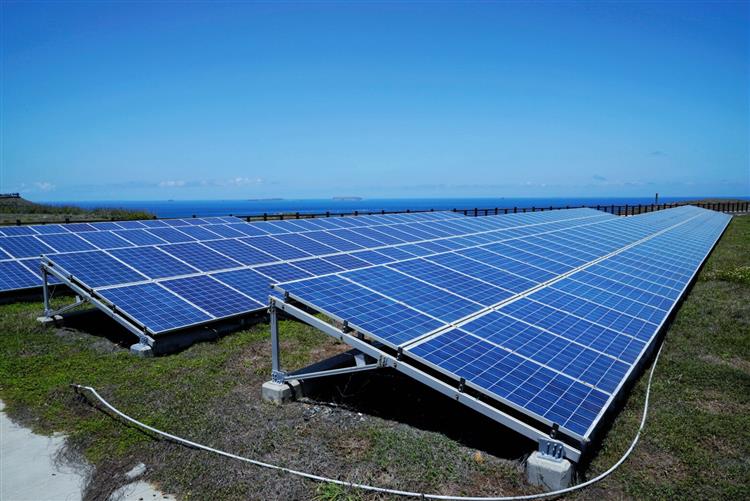
Electricity generated by solar panels is a core component of Taipower’s newly launched smart microgrid in outlying Penghu County’s Qimei Island. (Courtesy of Ministry of Economic Affairs)
A smart microgrid was launched May 15 in outlying Penghu County’s Qimei Island as part of government efforts promoting green energy and transforming Taiwan into a low-carbon nation.
Developed by state utility Taiwan Power Co. and the Ministry of Science and Technology, the microgrid integrates electricity generated by solar panels, wind turbines and diesel generators for more efficient storage and transmission.
According to Taipower, incorporating renewables into the mix through advanced energy management practices ensures stable electricity supply and reduces costs. The long-term goal is to power Qimei entirely by sustainable sources during off-peak periods and roll out the initiative to other islands in Penghu and remote parts of Taiwan.
The around 4,000 residents of Qimei use 7.8 million kilowatt-hours of electricity per year, with the bulk produced by diesel generators. After planned microgrid expansion and additional green energy production facilities come on line next year, annual capacity derived from renewables will hit 3.37 million KWh, or 43 percent of the island’s total power needs.
Taipower estimates put associated savings stemming from the subsequent reduction in use of diesel generators to exceed NT$50 million (US$1.68 million) per year.
Green energy is a key component in the government’s five-plus-two innovative industries initiative, an economic revitalization program that also targeting the high-growth sectors of biotech and pharmaceuticals, national defense, smart machinery and Internet of Things, as well as the promotion of two concepts: the circular economy and a new paradigm for agricultural development. (SFC-E)








